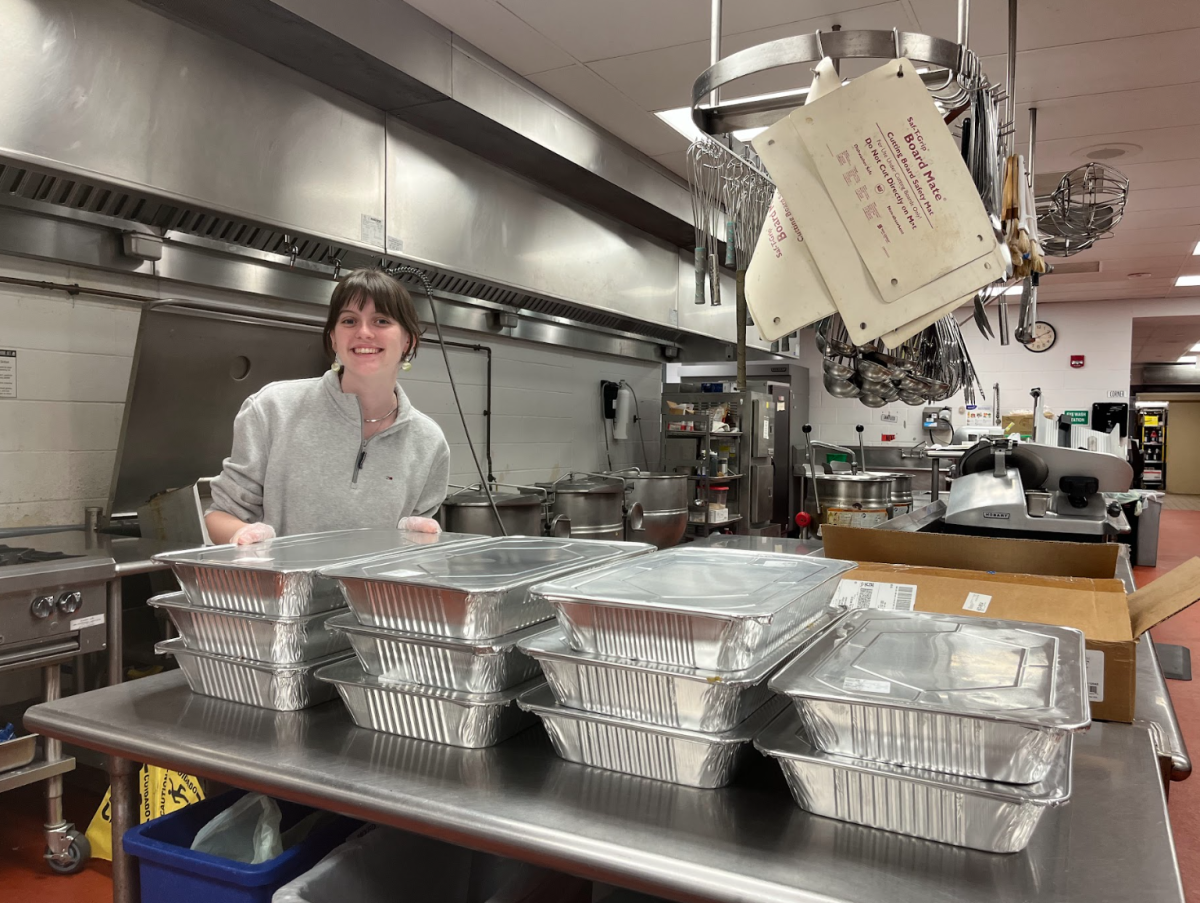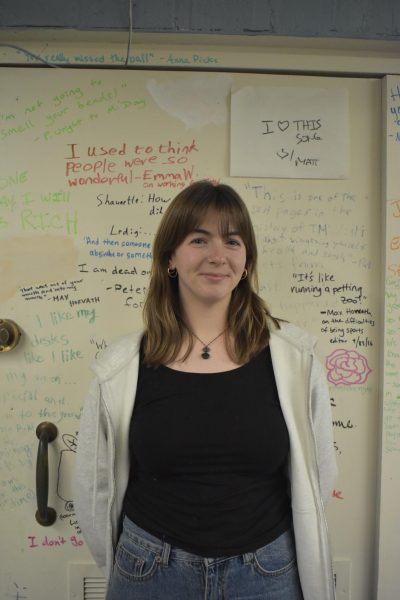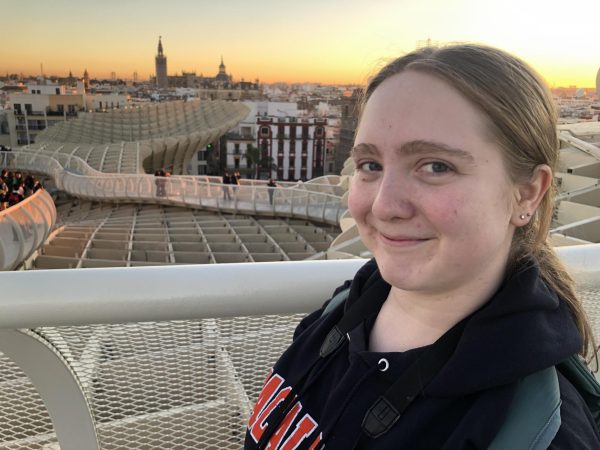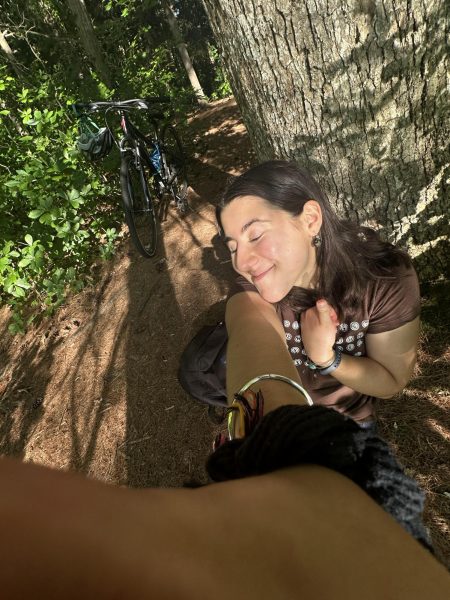Meeting every week in the kitchen of Cafe Mac is Macalester’s chapter of the Food Recovery Network, which works to collect and donate 70-110 pounds of food to Minneapolis food bank Loaves and Fishes. The national program puts students at the forefront, working to connect excess food on college campuses with food insecure people in the community. Director of Sustainability at Macalester Megan Butler oversees and advises the program.
“Food waste is the food that was meant for humans that, for some reason, was not eaten,” Butler said. “So we’ve put in the effort of growing it, transporting it, preparing it, and then it’s winding up in the waste stream.”
Food Recovery works to bridge the gap between excess food and food insecurity, a paradoxical phenomenon that is fairly common in urban areas, especially on college campuses.
“Food insecurity is going up in the Twin Cities [since the] pandemic,” Butler said. “It’s going up on college campuses; some surveys recently have said one in four college students reported feeling food insecure in the last couple of months. It feels deeply wrong to be able to say we have a problem with wasteful food and then be able to say we have a problem with food insecurity.”
Founded in 2014 by Amanda Wareham ’15, Macalaster’s Food Recovery program was originally run through Mac Share, a subsidiary of the Sustainability Office. Now, it operates through a grant from the county and is led by Abby White ’26 and Nurain Jiwani ’26.
Each Sunday, Sous Chef Mallory Morrell gathers all the food that is suitable for donation from the previous week. White, Jiwani and volunteers transfer the food into transportable pans, which White drives to Loaves and Fishes the next day. The program has bulked up since Morrell started working here six years ago, Morrell wrote in an email to The Mac Weekly.
“The amount of food and waste we go through in kitchens is immense; the fact that we have this program to help people in need of food is pretty awesome,” Morrell wrote. “So much food is wasted in the world and I am happy [Bon Appétit] has made it a priority to give back and keep more food out of landfills and on hungry people’s plates instead.”
The program is achieving this goal in a few new ways: turning their attention to campus events and catered food and developing infrastructure to combat food insecurity at Macalester.
“We are working on expanding food recovery to cover events on campus,” White said. “So we have a free food at Mac Instagram account that we are just bringing back now, [and] we are working on developing an app for free food alerts.”
These developments will follow initiatives at other schools to ensure excess food on campus is going directly to students.
“We have to work within the 4-hour food safety window which is a challenge,” White elaborated. “Catering staff have buffer windows between event end time and clean up so our goal is to allow students to come eat leftover food during that window because otherwise it’s wasted.”
Within this objective is the overall push for a greater use of resources on campus. Butler highlighted the idea of cooking lessons with dry goods from the pantry, which is another way to expand access.
“I worry that people could benefit from programs like the free pantry and then self-select, like ‘somebody needs this more than me,’” Butler said. “We’re working on figuring out how to make things like Mac Share or the pantry more accessible to people [and] figuring out: other than the presence of food, what are the other barriers for people eating culturally appropriate and healthy foods?”
Since its founding and especially since the shutdowns in 2020, the program has seen some changes in its operations.
“It’s definitely changed a lot post-COVID,” White said. “[The program] used to operate at a higher capacity. We don’t have a huge program right now. We used to get a lot more food, but that’s also because they used to make a lot more waste.”
Nevertheless, there is still hope that the program will grow from here, particularly in instances of over-purchasing.
“At the end of first semester last year, when everybody left for winter break, we got about 400 pounds of food and most of it was produce that they weren’t going to use,” White said. “We have been able to donate actually healthy and good food.”
White and Butler both emphasized the wish for more engagement and acknowledgement for the work they are doing, that its importance extends beyond the campus community.
“We’re always looking for volunteers,” White said. “Anybody can come volunteer Sunday nights at 7:30 in the CC. We’re [not a student org but we’re] trying to get more [student engagement].”















